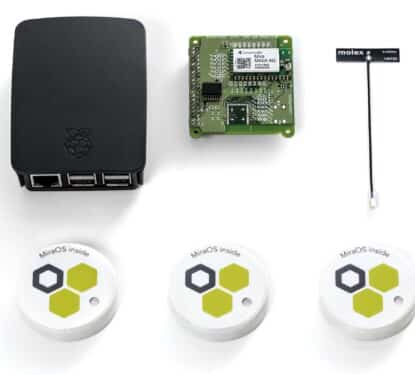Civil infrastructure is at the very heart of modern society. Be it for power, water, transport or healthcare; these technical systems are ubiquitously responsible for supervision, control, and management of infrastructure that lays the foundation for almost everything we do. Civil infrastructure provides essential services and shelter, it supports social interactions and drives economic development.
The importance of civil infrastructure makes system reliability paramount. However, as we modernize our ageing infrastructure to add features for rapidly evolving technology, within our dynamic urban spaces, it can be challenging to design and build for the longer term. That’s what the establishment of the Civil Infrastructure Platform (CIP) Initiative, hosted by the Linux Foundation hopes to address through open collaboration.
“With ever increasing software intensity of our systems, partnering and open source development are necessary to ensure high quality core components based on IT technology. CIP will help us focus on these challenges,” Marquart Franz, Senior Principal Key Expert for IT platforms at Siemens Corporate Technology.
Driven by the world’s leading manufacturers of civil infrastructure systems, CIP aims to provide a base layer of industrial-grade tooling using the Linux kernel and other open source projects. This base layer will be available for use by developers creating software building blocks that meet safety, security, reliability and other requirements that have become critical to modern industrial and civil infrastructure projects worldwide.
“Hitachi has a long history of contributions such as power, water, urban and transport systems which require both safety and reliability. The aim of CIP is to provide a platform which satisfies these needs, and we believe that it will become a common, global platform through which we can achieve an even more comfortable and efficient society,” Masaaki Iwasaki, Laboratory Manager of the OSS Technology Laboratory in the Research and Development Group of Hitachi Ltd.
CIP addresses the needs of long-term software for the power generation and distribution, water, oil and gas, transportation and building automation industries. Member companies such as Codethink, Hitachi, Plat’Home, Renesas, Siemens and Toshiba are working together to create a reliable and secure Linux-based embedded software platform that can be sustained for at least 10 years, but potentially up to 60 years.
“CIP is committed to creating, testing and maintaining an open source software foundation needed to deliver essential services for civil infrastructure and economic development on a global scale,” said Yoshitake Kobayashi, Chair of CIP’s Technical Steering Committee and the Senior Manager of Open Source Technology Department at Toshiba.

The platform recently launched a new sub-project named CIP Core - a reference file system composed by CIP Kernel and Debian package - that provides a base software stack, specifically designed for civil infrastructure projects with longer lifespans. “The CIP Core is a major milestone that will provide a platform for developers to easily build a reference file system and quickly test the CIP kernel with specific application and use cases. This customizable testing will eventually become a part of the product solution,” said Kobayashi.
Through projects like CIP Core, CIP aims to; speed implementation of Linux-based civil infrastructure systems, build upon existing open source foundations and expertise, establish de facto standards by providing a base layer reference implementation, and contribute to and influence upstream projects regarding industrial needs. While still in its early stages, the project’s backers believe this open-source approach could have a profound impact on our lives.
“Collaborative open source development is the best way to not only overcome common issues but also to lead innovation for the future. Toshiba thinks that CIP will become an essential software platform to improve our life,” Shigeyoshi Stimotsuji, Executive Vice President of Industrial ICT Solutions Company of the Toshiba Corporation.
Civil infrastructure may not the the most exciting element of our digital and cyber-physical transformations, but modern society relies on these systems for their basic needs. As our technology evolves we have a responsibility to provide better performance, through accuracy, efficiency and new features, but also to ensure the highest levels of safety and reliability to protect our way of life.
“In the era of IoT and distributed computing, safety, security, system robustness are becoming more important than ever. For example, nuclear power plants, traffic control systems and other safety critical systems used to be stand-alone systems, but now becoming connected,” explains Noriaki Fukuyasu, Vice President of Japan Operations for The Linux Foundation. “Public safety, security, and system robustness may seem boring to some, but to us, this is meaningful for society in the future.”
[contact-form-7 id="3204" title="memoori-newsletter"]



